
The Palace of Westminster is the meeting place of the Parliament of the United Kingdom and is located in London, England. It is commonly called the Houses of Parliament after the House of Commons and the House of Lords, the two legislative chambers which occupy the building. The palace is one of the centres of political life in the United Kingdom; "Westminster" has become a metonym for the UK Parliament and the British Government, and the Westminster system of government commemorates the name of the palace. The Elizabeth Tower of the palace, nicknamed Big Ben, is a landmark of London and the United Kingdom in general. The Palace of Westminster has been a Grade I listed building since 1970 and part of a UNESCO World Heritage Site since 1987.
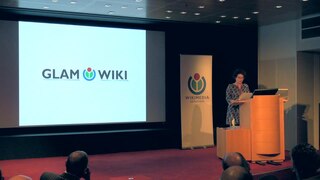
Public speaking, also called oratory, is the act or skill of delivering speeches on a subject before a live audience.
Worldcon, or more formally the World Science Fiction Convention, the annual convention of the World Science Fiction Society (WSFS), is a science fiction convention. It has been held each year since 1939. The members of each Worldcon are the members of WSFS, and vote both to select the site of the Worldcon two years later, and to select the winners of the annual Hugo Awards, which are presented at each convention.

Toastmasters International (TI) is a US-headquartered nonprofit educational organization that operates clubs worldwide for the purpose of helping people develop communication, public speaking, and leadership skills.

Carl Bert Albert was an American lawyer and politician who served as the 46th speaker of the United States House of Representatives from 1971 to 1977 and represented Oklahoma's 3rd congressional district as a Democrat from 1947 to 1977.

Debate is a process that involves formal discourse, discussion, and oral addresses on a particular topic or collection of topics, often with a moderator and an audience. In a debate, arguments are put forward for common opposing viewpoints. Debates have historically occurred in public meetings, academic institutions, debate halls, coffeehouses, competitions, and legislative assemblies. Debates have also been conducted for educational and recreational purposes, usually associated with educational establishments and debating societies. These debates emphasized logical consistency, factual accuracy, and emotional appeal to an audience. Modern forms of competitive debate also include rules for participants to discuss and decide upon the framework of the debates.
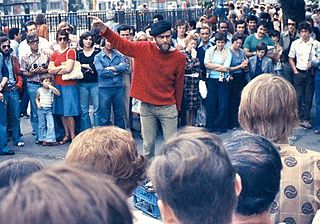
A Speakers' Corner is an area where free speech open-air public speaking, debate, and discussion are allowed. The original and best known is in the north-east corner of Hyde Park in London, England. Historically there were a number of other areas designated as Speakers' Corners in other parks in London, such as Lincoln's Inn Fields, Finsbury Park, Clapham Common, Kennington Park, and Victoria Park. Areas for Speakers' Corners have been established in other countries and elsewhere in the UK.

The Legislative Assembly of Ontario is the legislative chamber of the Canadian province of Ontario. Its elected members are known as Members of Provincial Parliament (MPPs). Bills passed by the Legislative Assembly are given royal assent by the lieutenant governor of Ontario to become law. Together, the Legislative Assembly and Lieutenant Governor make up the unicameral Legislature of Ontario or Parliament of Ontario. The assembly meets at the Ontario Legislative Building at Queen's Park in the provincial capital of Toronto.
A master of ceremonies, abbreviated MC or emcee, is the official host of a ceremony, staged event, conference, convention, or similar performance.
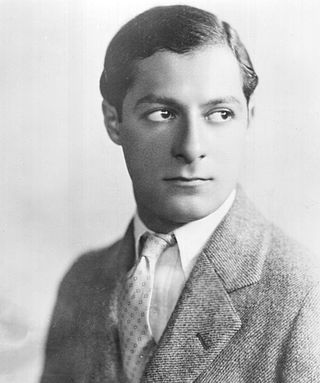
George Albert "Georgie" Jessel was an American actor, singer, songwriter, and film producer. He was famous in his lifetime as a multitalented comedic entertainer, achieving a level of recognition that transcended his limited roles in movies. He was widely known by his nickname, the "Toastmaster General of the United States," for his frequent role as the master of ceremonies at political and entertainment gatherings. Jessel originated the title role in the stage production of The Jazz Singer.

World Conference is the highest legislative body in Community of Christ and is empowered to act for the entire church. It operates according to a principle known as "common consent" and is presided over by the First Presidency. The functioning of the councils, quorums and orders of the church are also considered an important part of the World Conference.

A soapbox is a raised platform on which one stands to make an impromptu speech, often about a political subject. The term originates from the days when speakers would elevate themselves by standing on a wooden crate originally used for shipment of soap, or other dry goods, from a manufacturer to a retail store.
Herbert Victor Prochnow was a U.S. banking executive, noted toastmaster, and writer during the middle 20th century. As Vice President of the First National Bank of Chicago, Prochnow wrote several popular books on public speaking. He also wrote epigrams and anecdotes that appeared in The Saturday Evening Post and Reader's Digest. In the 1930s, he rose in the foreign--later international--department at First National Bank. In the mid-1940s, Prochnow was a member of the Office of Strategic Services, recruiting and training American spies for an organization viewed as a predecessor of the CIA. A decade later, U.S. Secretary of State John Foster Dulles asked Prochnow to come to Washington to serve as deputy undersecretary of state for economic affairs, a position he held for two years. He also served as secretary of the Federal Advisory Council of the Federal Reserve System for more than 40 years.

The chairman, also chair, chairwoman or chairperson, is the presiding officer of an organized group such as a board, committee, or deliberative assembly. The person holding the office, who is typically elected or appointed by members of the group or organisation, presides over meetings of the group, and conducts the group's business in an orderly fashion.
Ralph C. Smedley was the founder of Toastmasters International, an international speaking organization with more than 352,000 members in 141 countries and more than 16,400 individual clubs.
Communications training or communication skills training refers to various types of training to develop necessary skills for communication. Effective communication is vital for the success in various situations. Individuals undergo communications training to develop and improve communication skills related to various roles in organizations. Good executive communication helps garner trust between bosses and employees and between team leaders and their direct reports.

Party leaders of the United States House of Representatives, also known as floor leaders, are congresspeople who coordinate legislative initiatives and serve as the chief spokespersons for their parties on the House floor. These leaders are elected every two years in secret balloting of their party caucuses or conferences: the House Democratic Caucus and the House Republican Conference. Depending on which party is in power, one party leader serves as majority leader and the other as minority leader.
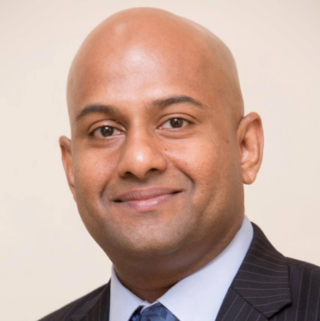
Manoj Vasudevan is an International speaker, author, consultant and coach. He is the founder of Thought Expressions. Vasudevan is best known for winning the World Champion of Public Speaking by Toastmasters International in 2017.

State and official visits to the United Kingdom are formal visits by the head of state of one country to the United Kingdom, during which the British Sovereign acts as official host of the visitor. It is a royal event that involves all the assets in the Civil Service, the Royal Household and the Household Division. It also involves other members of the Royal family and is centred in London, the national capital. Invitations for state visits are sent by the Royal Household with supervision by the Foreign and Commonwealth Office.
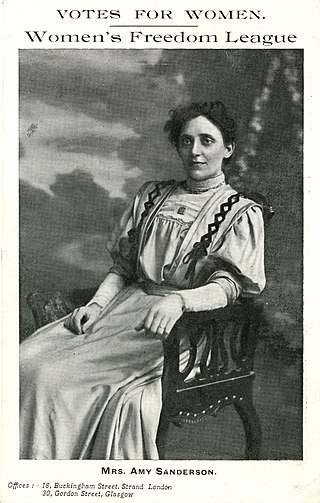
Amy Sanderson née Reid (1876-1931), was a Scottish suffragette, national executive committee member of the Women's Freedom League, who was imprisoned twice. She was key speaker at the 1912 Hyde Park women's rally, after marching from Edinburgh to London, and, with Charlotte Despard and Teresa Billington-Greig, was a British delegate to the 1908 and 1923 international women's congresses.














